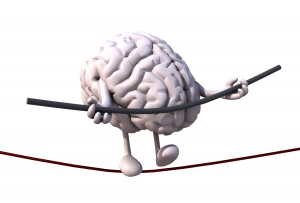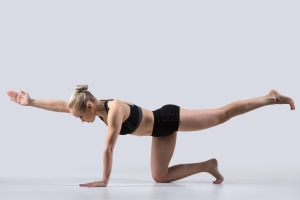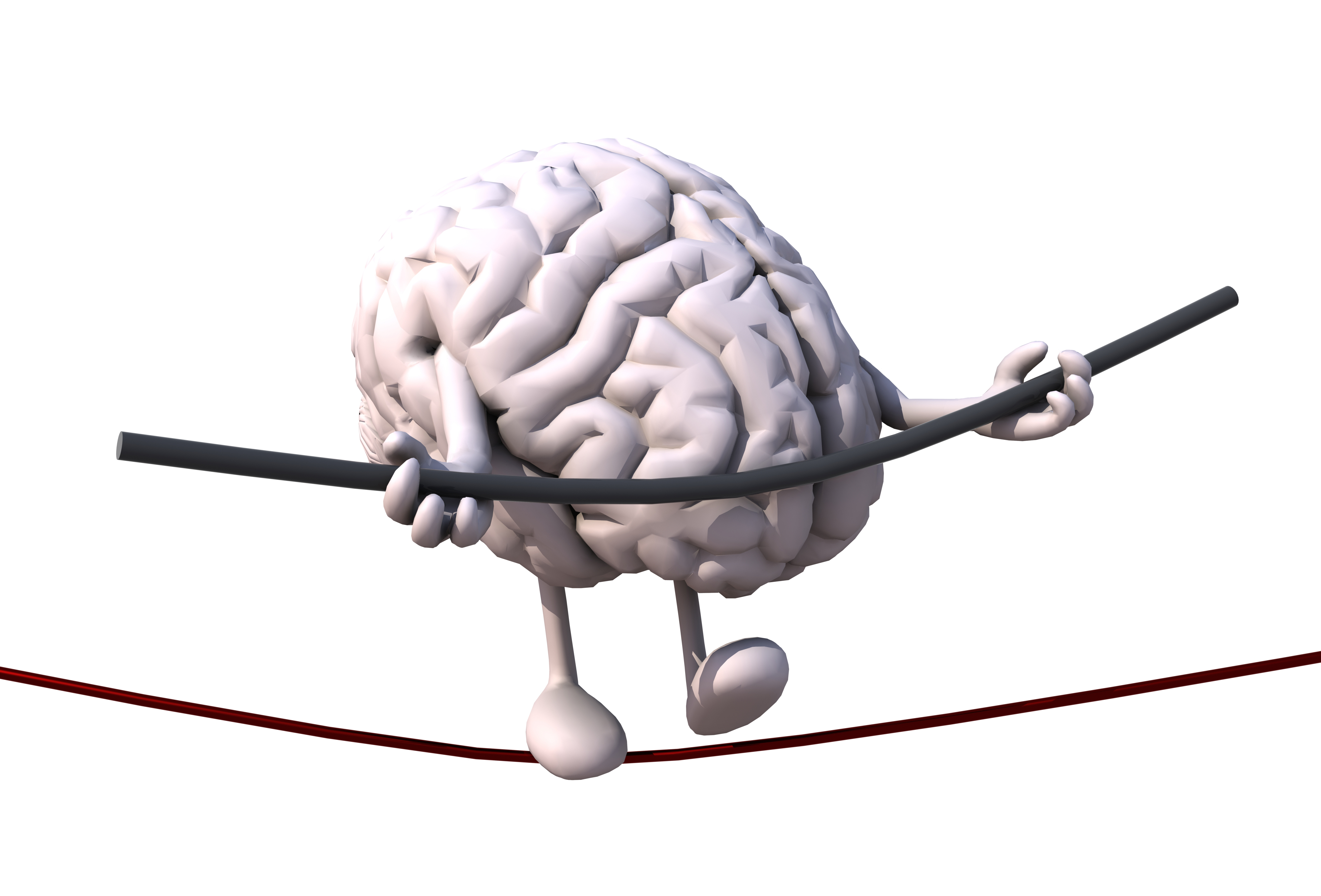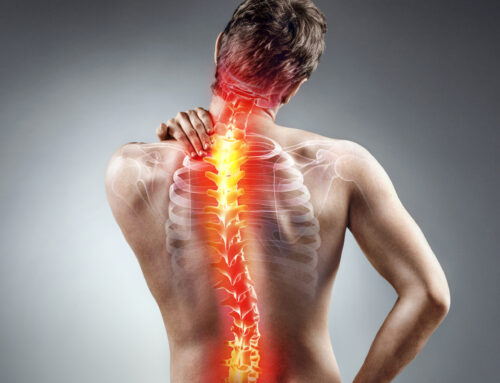Have you ever asked yourself, “Does my ability to maintain healthy balance have anything to do with how well I think, remember, and solve problems?” Perhaps that exact thought, or anything close to it, has 
never actually crossed your mind, but it should. Assessment and treatment of impaired balance is being researched as a possible “Holy Grail” for higher level thinking by many experts in the brain world
The Benefits (and Consequences) of Bipedalism
Our ability to stand on two legs is nothing short of remarkable. Becoming bipedal is possibly our greatest feat as human beings. Balancing on the stilts we call legs requires a tremendous amount of brainpower. Walking is an even greater accomplishment! Then why isn’t everyone talking about this? While standing, and even more so while walking, we are constantly in a state of falling. Think about this, when an individual’s brain is “offline” due to alcohol consumption, disease, or simply waking from a deep sleep, he or she has a dramatic increase in the likelihood of falling.
Our brain requires constant and precise input from the many sensory receptors located in our eyes, inner ears (vestibular system), muscles and joints (proprioceptive system). Any damage to these systems, or changes in our brain’s control over these systems, will lead to measurable changes in our ability to balance and walk. It works both ways.
The Connection Between Balance and Cognition
Now that you understand the very basic connections between the brain and our ability to maintain balance, you can begin to see why it is essential to maintain healthy balance. Bipedal locomotion (walking on two legs) has long been associated with our larger and more complex human brains. Over the past several decades, the research has been accumulating to support the fact that our ability to move through our environment (spatial navigation) is directly related to our ability to learn and remember. A groundbreaking paper published in the Journal of Vestibular Research, demonstrates that the degree of damage to the vestibular system is directly correlated to changes in the hippocampus, which is a key component of memory and higher cognitive function.
A more recent paper published in the journal Stroke, discusses the irrefutable link between poor balance, cognitive decline, and small blood vessel disease in the brain. Subjects that had a reduced ability to stand on one leg were clearly shown to have lower cognitive functions of memory and spatial awareness. The lead author of this study urged that those with postural instability (impaired balance) should receive special attention as they may be at greater risk of cognitive decline.
Many cognitive researchers now agree that the simple neurological observation of a patient’s ability to “rise, stand and walk” is “the single most important part of the entire neurologic examination.”
What to Do if You Are Having Balance Problems?
Fix it! You can improve your balance by exercising the brain and body. Perform these simple exercises twice a day and see your balance improve and your brainpower strengthen.
One Leg Stance – Stand on one leg without your other leg touching. Keep your eyes up off of the floor. If you need assistance, hold lightly onto a chair or doorframe.
One Leg Airplane – Stand on one leg. Tip forward while keeping a good lumbar curve. Rotate from side to side, slowly keeping eyes forward not down.
Bird-Dog – On hands and knees, begin by raising one hand and replace it on the floor. Raise a leg and  replace it on the floor. If you are able to keep your spine stable during the beginner exercise, then raise opposite arm and leg with a stable spine.
replace it on the floor. If you are able to keep your spine stable during the beginner exercise, then raise opposite arm and leg with a stable spine.
Founder – With your feet wide apart, bend at the waist keeping your weight into your heels. Bend your knees slightly with your hands at your side. Take a deep breath and hold this position for 15 seconds. Now slowly take your hands overhead and hold again for 30 seconds.
Would you like to learn more exercises and work toward improved balance and brainpower? Join us for our Balance Exercise Class! Call our Roanoke, Virginia office at 1-540-344-1055 for more information. Follow us on Facebook for more helpful tips and tools.
Balance Exercise Class–Tuesday March 29th at 6-7pm.
Wear Comfortable Clothes And Be Ready For A Fun Night.

Dr. Daryl Rich, DC, CSCS






